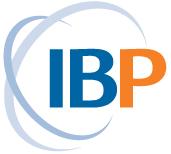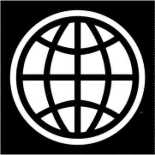Posted by Vivek Ramkumar


The International BudgetPartnership (IBP) and the World Bank Institute (WBI) are pleased to invite you to join practitioners in thefields of development and fiscal management in a discussion on how to increasebudget transparency and participation around the world. The discussion will include a presentation of the results of the IBP’s latest round of the Open Budget Survey and thenfocus on indentifying innovative and practical suggestions for rapidly improvingcountry performance on the Survey.
Date: 5 February 2013
Time: 9.30-11 am (Breakfast will be served from 9am)
Venue: IFC Auditorium, 2121 Pennsylvania Avenue,Washington D.C.
There is growing interest in the role of openbudgeting systems in development. An increasing body of evidence shows that the bestway to manage public funds efficiently and equitably is through budget systems that aretransparent, inclusive, and monitored through independent oversight institutions. Recentresearch studies also show that transparency can help to attract easier and cheaperinternational credit and thereby increase public revenues. On the other hand, lack of fiscaltransparency can undermine fiscal discipline,increase borrowing costs, and promoteopportunities for corruption and other leakages.
The Open Budget Survey 2012 is the onlyindependent, comparative and regular measure of budget transparency around the world. Thesurvey measures public access to national budget information and opportunities toparticipate in the budget process. It also examines the strength of legislators and auditors in thebudget process. The Survey is implemented by independent budget experts in each country andrigorously vetted. The 2012 Survey is the fourth round of the Survey, and it covers 100countries, home to 89 percent of the world’s population.
The results of the Survey highlight a criticaldevelopment challenge for all of our work. While budget transparency has improved over thepast eight years of the Survey, the state of budget transparency around the world is dismal.At the current pace of improvement, significant levels of budget transparency aroundthe world will not be reached until 2030, after the next round of MDGs. Yet many countries —in Africa, Asia, and Latin America — have managed to substantially increase budgettransparency in a relatively short period of time. How do we learn from these experiences andencourage many more countries to follow suit? This discussion will focus on thischallenging topic. The meeting will include a panel discussion involvingofficials from government, the World Bank, and the IBP. Following the panel discussion,members of the audience will be invited to present their comments and perspectives on thekey issues addressed by the panelistsand make suggestions for potential solutions tothese issues. Critical questions to be addressed include:
· What lessons can be learned from the experiences ofcountries that have improved budget transparency within a short period of timeon the factors that influenced their decisions to institute such improvements?
· What are the incentives for governments to increasebudget transparency now, and how could these be influenced by domesticstakeholders, development partners, global efforts and other factors?
· What are the implications of the state of budgettransparency for the United Nations’ post-2015 development framework?
· What practical mechanisms can and should governmentsuse to enable their citizens to participate effectively in budget decisionmaking?
We invite you to attend and challenge you to bringpractical ideas to the table on how to incentivize rapid improvements in budgettransparency around the world.
To RSVP, please send your full name, organization,and email address to calderon@cbpp.org before 31 January 2013.
---------------------------------------------------------------------------------------------------------------------
The IBP collaborates with civil societyorganizations in developing countries to analyze, monitor, and influence government budgetprocesses, institutions, and outcomes. The aim of the IBP is to make budget systems moreresponsive to the needs of poor and low-income people in society and, accordingly, to make thesesystems more transparent and accountable to the public. Information on theInternational Budget Partnership and the Open Budget Survey is available atwww.internationalbudget.org.
The World Bank Institute (WBI) is a globalconnector of knowledge, learning and innovation for poverty reduction. It supports theWorld Bank’s operational work and its developing country clients by forging new dynamicapproaches to capacity development and finding suitable solutions for pressingchallenges. WBI offers three areas of support: Open Knowledge - connecting them to globalknowledge and learning on the “how” of reform; Collaborative Governance - helpingstakeholders to mobilize for collective action, and Innovative Solutions – scanning, incubatingand surfacing innovations to tackle key
development challenges.





